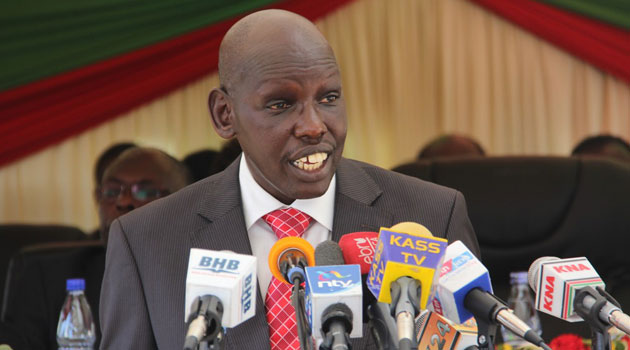
Education crisis looms as Sh43.4bn budget shortfall hits sector » Capital News
NAIROBI, Kenya, Feb 20 – A crisis is looming in Kenya’s education sector following a Sh43.4 billion budget shortfall affecting critical areas like free primary and secondary education in the 2025/2026 financial year.
The learning over over 982,197 secondary school students under the Free Secondary Education (FSE) program now hangs in the balance due to a funding gap of Sh21.85 billion in the upcoming fiscal year.
Appearing before the National Assembly Education Committee, Basic Education Principal Secretary Belio Kipsang raised concerns over the budget deficit, urging MPs to intervene to prevent a crisis in secondary education.
The State Department of Basic Education had requested Sh76.73 billion in capitation funds to support 3,244,325 secondary school students at Sh22,244 per learner and 9,243 Special Needs Education learners at Sh50,772 per learner.
“I think this budget shortfall is where we need MPs to reconsider and re-evaluate,” PS Kipsang said while defending the Budget Policy Statement.
Tinderet MP Julius Melly, who chairs the committee, questioned why the Free Secondary Education budget had remained constant despite a decreasing number of learners following the transition from the 8-4-4 system to the Competency-Based Curriculum (CBC).
“In Free Secondary Education, the numbers we are looking at are Form 1, 2, and 3 students, and these numbers are decreasing. Next year, you will only have two classes. Don’t you think the Sh54.8 billion allocation should be reconsidered?” Melly asked.
Mandera South MP Ebrahim Abdul also raised concerns about the Ministry of Education’s preparedness to implement critical programs if no additional funding is allocated due to the government’s cash crisis.
“What are your plans to mitigate this serious shortfall, which seems to be worsening year after year, particularly regarding education quality and outcomes?” Abdul inquired.
Examination Administration at Risk
The administration and invigilation of three key examinations Primary School and Junior Secondary School assessments could be hampered due to an underfunding of Sh6.87 billion.
Beginning in 2025, the Kenya National Examination Council (KNEC) is set to administer the Kenya Junior Secondary School Education Assessment (KJSEA) for 1.1 million learners.
However, uncertainty looms over the seamless administration of these exams due to funding gaps.
KNEC has also announced the registration of the 2025 Kenya Primary School Education Assessment (KPSEA) and Kenya Intermediate Level Education Assessment (KILEA) ahead of the scheduled assessments.
“That’s where we have a huge underfunding. The resource requirement for KJSEA is Sh3.57 billion, in addition to Sh8.1 billion for administering the Kenya Secondary School Examination and KPSEA,” PS Kipsang noted.
School Feeding Program
President William Ruto’s administration’s plan to provide school meals to 2.6 million needy learners in Arid and Semi-Arid Lands (ASAL) and urban slum areas is also in jeopardy due to a Sh4.21 billion shortfall.
PS Kipsang explained that the Ministry of Education had requested Sh7.21 billion but was only allocated Sh3 billion, raising concerns about achieving the target of the feeding program.
Additionally, the State Department of Basic Education had sought Sh2.57 billion for primary and secondary school infrastructure development as well as training colleges.
However, the National Treasury declined to allocate the requested funds, sparking concerns among legislators about how the CBC curriculum will be implemented without adequate infrastructure.